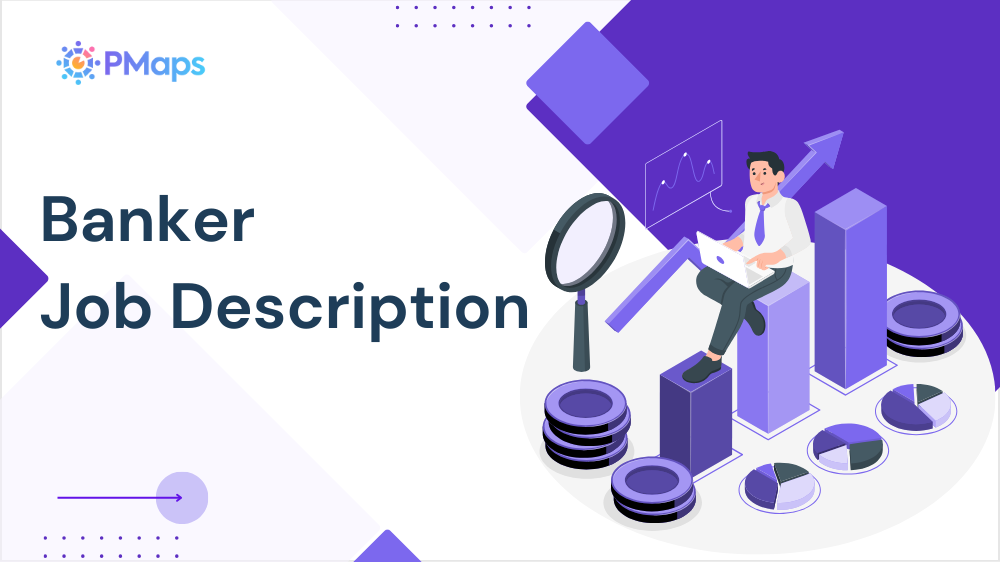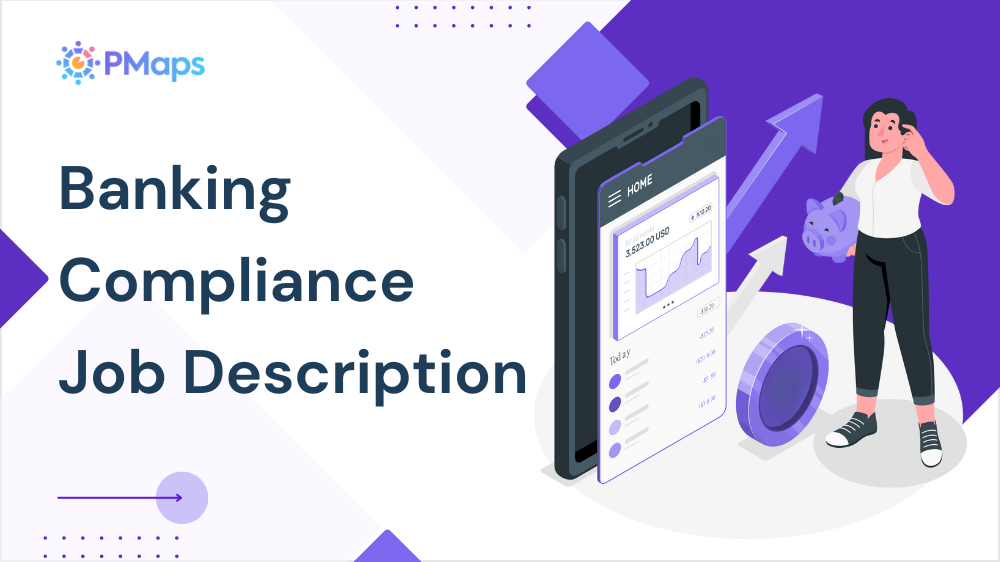
In the banking sector, hiring the right talent means finding professionals who bring financial judgment, regulatory awareness, and client service orientation to every transaction. Whether you’re hiring for frontline retail, credit, or operations, structured interviews are critical to reduce turnover and regulatory risk.
According to LinkedIn’s Global Financial Hiring Report (2024), nearly 60% of banking managers cite inadequate interview structuring as a major cause of mis-hires in retail and corporate banking. The solution: role-aligned, scenario-based evaluation. This guide features 25 targeted bankers interview questions and answers to help HR professionals and hiring managers:
- Evaluate regulatory awareness, client handling, and risk posture
- Identify candidates ready for cash-handling, product pitching, or KYC-heavy roles
- Standardize hiring across teller, officer, and advisory positions
Let’s begin with general bank interview questions and answers that assess baseline industry understanding and intent.
General Interview Questions for Bankers
The foundation of any successful banker is built on financial integrity, service orientation, and institutional understanding. These general bankers interview questions help uncover whether the candidate possesses a clear sense of purpose and long-term alignment with banking responsibilities.
Sample Candidate Answer: I want to work in banking because it offers a structured environment that combines customer service and financial systems. I’m especially interested in roles involving client support, regulatory process, and transaction management, and I follow standard operating procedures to avoid error.
This kind of structured, intent-driven response helps interviewers differentiate between candidates seeking transactional roles and those genuinely aligned with banking careers.
Here are five key bank interview questions and answers to establish role fit and motivation:
1. Why do you want to work in the banking industry?
What it Assesses: Career motivation and domain clarity. This question reveals whether the candidate is interested in a structured finance career or views the role as a transitional opportunity.
What to Listen For: Look for mentions of financial systems, customer service, compliance interest, or long-term interest in financial careers. Surface-level answers may suggest short-term intent.
2. What do you understand about the day-to-day responsibilities of this banking role?
What it Assesses: Role awareness and job preparedness. Candidates should demonstrate an accurate understanding of operational and customer-facing duties.
What to Listen For: Listen for references to cash handling, KYC compliance, transaction processing, customer query management, and product awareness depending on the specific job type.
3. What qualities make someone a good banker?
What it Assesses: Values alignment and role perception. This question identifies if the candidate understands both the technical and behavioral expectations of the role.
What to Listen For: Answers should include honesty, attention to detail, compliance focus, customer empathy, and transaction accuracy. Avoid overly generic responses.
4. How do you ensure accuracy in your work?
What it Assesses: Process discipline and attention to detail. Accuracy is essential in both financial data entry and client servicing.
What to Listen For: Candidates should describe double-check systems, process adherence, or tool-based validation. Look for signs of routine discipline and personal accountability.
5. How would you explain a basic banking product to a new customer?
What it Assesses: Communication skills and product fluency. This question tests the candidate’s ability to translate banking concepts to everyday customer needs.
What to Listen For: Look for clarity, simplicity, and adaptability. The candidate should avoid jargon and focus on customer benefit, process, and risk/reward elements.
Behavioral Interview Questions for Bankers
In banking roles, past behavior is often the strongest predictor of how a candidate will handle operational pressure, customer disputes, or risk-sensitive decisions. These banking behavioural interview questions and answers help reveal how candidates respond under scrutiny or when managing cross-functional responsibilities.
Sample Candidate Answer: During my previous role, I encountered a customer dispute over a delayed fund transfer. I first verified the transaction record, then calmly explained the timeline and documented everything before escalating to the backend team. The client appreciated the transparency, and the issue was resolved within 24 hours. This experience reinforced my belief in staying process-oriented even when pressure rises.
A response like this reflects not just experience but maturity in handling emotional and operational triggers—qualities essential in a banking environment. Here are five structured bank HR interview questions focused on behavior and workplace attitude:
1. Tell me about a time you dealt with a difficult customer. How did you manage the situation?
What it Assesses: Emotional intelligence, customer handling, and escalation maturity.
What to Listen For: Look for signs of patience, clarity in communication, documented process follow-through, and a non-reactive tone when discussing emotionally charged issues.
2. Describe a time when you identified an error in your work. What did you do?
What it Assesses: Accountability and response to potential risk.
What to Listen For: Look for candidates who mention owning up to the error, notifying the appropriate team, correcting the issue quickly, and preventing future recurrence.
3. Share an experience where you worked under high pressure or handled long queues.
What it Assesses: Time management and stress regulation.
What to Listen For: Candidates should describe prioritization strategies, client communication to manage expectations, and focus on maintaining service accuracy despite urgency.
4. Tell me about a time you had to explain a financial concept to someone unfamiliar with it.
What it Assesses: Communication and customer education ability.
What to Listen For: Strong responses show the candidate used analogies, simple terms, or printed resources to support understanding and ensure transparency.
5. Have you ever disagreed with a team decision? How did you handle it?
What it Assesses: Team collaboration and conflict resolution.
What to Listen For: The focus should be on how they voiced their concerns respectfully, supported it with data, and accepted the final decision after escalation.
Situational Interview Questions for Bankers
Situational questions help assess how candidates approach hypothetical but realistic scenarios—particularly around customer service, transaction risk, compliance, and cross-team coordination. These banking industry interview questions simulate common dilemmas that require clear judgment and procedural discipline.
Sample Candidate Answer: If I noticed a customer withdrawing unusually large amounts just below the reporting threshold, I would flag it for internal review after documenting the pattern. I would continue processing the transactions per guidelines but inform the compliance officer. This approach balances client service with regulatory vigilance.
This kind of response reflects awareness of financial risk protocols, discretion, and role-based escalation—key for any role in banking.
Below are four situational banking interview questions and answers designed to evaluate judgment in action:
1. A customer wants to close their account immediately after a minor issue. What would you do?
What it Assesses: Retention strategy, service recovery skills, and emotional handling.
What to Listen For: Candidates should focus on listening first, de-escalating the issue professionally, and offering practical solutions without sounding transactional or defensive.
2. You receive a fake document during the onboarding process. How would you handle it?
What it Assesses: Compliance vigilance and ethical decision-making.
What to Listen For: They should describe discreetly halting the process, verifying with internal teams, escalating to a supervisor, and documenting the action while avoiding confrontation.
3. A customer demands immediate resolution on a process that takes longer. What’s your response?
What it Assesses: Expectation management and policy communication.
What to Listen For: Look for clear articulation of process timelines, providing alternate service windows, and offering updates without making commitments beyond authority.
4. You notice irregularities in a colleague’s transaction handling. What do you do?
What it Assesses: Ethical boundaries, discretion, and adherence to protocol.
What to Listen For: Strong candidates report the anomaly to a reporting manager without confronting the colleague, while maintaining confidentiality and professionalism.
Technical or Role-Specific Interview Questions for Bankers
Bankers must understand the tools and protocols that govern their daily operations—whether it’s transaction monitoring, regulatory compliance, or product recommendations. These technical questions for banking interview settings evaluate execution depth, not just textbook knowledge.
Sample Candidate Answer: During customer onboarding, I verify documents against the latest KYC checklist, validate PAN and Aadhaar through system tools, and log all entries into the CRM with a timestamp. If a discrepancy appears, I halt the workflow, escalate to the branch manager, and record it for audit trail. Consistency ensures both speed and compliance."
Responses like these reflect comfort with documentation standards, technology systems, and compliance-first workflows. Below are five core technical questions designed for teller, officer, or operations-level banking interviews:
1. What steps do you follow during a new account opening?
What it Assesses: KYC compliance, documentation accuracy, and process discipline.
What to Listen For: Candidates should mention ID verification, address proof, photo capture, signature validation, system entry, and welcome call processes.
2. How do you verify the authenticity of a cheque?
What it Assesses: Transaction scrutiny and fraud detection awareness.
What to Listen For: Look for signature match checks, MICR code review, date and amount verification, and familiarity with internal validation tools.
3. How would you respond if the system goes down during high-volume banking hours?
What it Assesses: Crisis management and contingency workflow knowledge.
What to Listen For: They should reference offline forms, manual queuing, customer communication, and timely coordination with the IT or operations desk.
4. What financial products are you comfortable explaining or selling?
What it Assesses: Product fluency and client-facing confidence.
What to Listen For: Savings, fixed deposits, recurring deposits, loans, credit cards, and possibly digital services like UPI or mobile banking.
5. How do you handle discrepancies in cash during end-of-day reconciliation?
What it Assesses: Attention to detail, cash handling protocol, and risk mitigation.
What to Listen For: They should mention recounting, transaction trail review, informing supervisors, preparing an incident report, and staying back until the issue is resolved.
Pro Tips for Interviewing Bankers
Banking roles require precision, composure, and compliance-first thinking. These tips help interviewers go beyond surface-level questioning to identify candidates who can reliably handle both transactional volume and customer trust.
1. Start with role-based KPIs from the Banker Job Description
Structure your questions around performance areas like transaction accuracy, KYC compliance, turnaround time, and customer satisfaction. Evaluating against defined KPIs helps standardize hiring across branches and functions.
2. Use live documentation samples in the interview
Ask candidates to review a sample cheque, KYC document, or application form. Their attention to formatting, compliance checks, and document completeness will reflect real-world readiness more clearly than theoretical answers.
3. Evaluate customer communication with a service prompt
Give the candidate a mock customer situation—like a delayed credit or dispute—and ask how they would respond. Their tone, clarity, and confidence should match the brand’s service standards.
4. Test process integrity through escalation scenarios
Present a boundary-case process issue: a suspicious account opening or minor document discrepancy. Evaluate how the candidate flags, reports, and resolves it—without bypassing established procedures.
5. Use the Financial Sales and Customer Service Associate Test to verify skill alignment
Assessment tools help validate cash-handling ability, product knowledge, and service consistency—especially useful when interviewing large volumes for teller or associate roles.
Conclusion
Banking roles demand a unique blend of transactional accuracy, regulatory discipline, and customer-first thinking. A structured interview framework allows hiring managers to evaluate not just what a candidate knows—but how they operate under risk, pressure, and procedural scrutiny.
The 25 targeted bankers interview questions and answers in this guide are designed to help you identify professionals who align with service quality, compliance standards, and performance KPIs across banking functions. To further strengthen decision-making, consider using a role-fit assessment such as the Finance Manager Test or connect with us directly at 8591320212 or assessment@pmaps.in for guidance.







